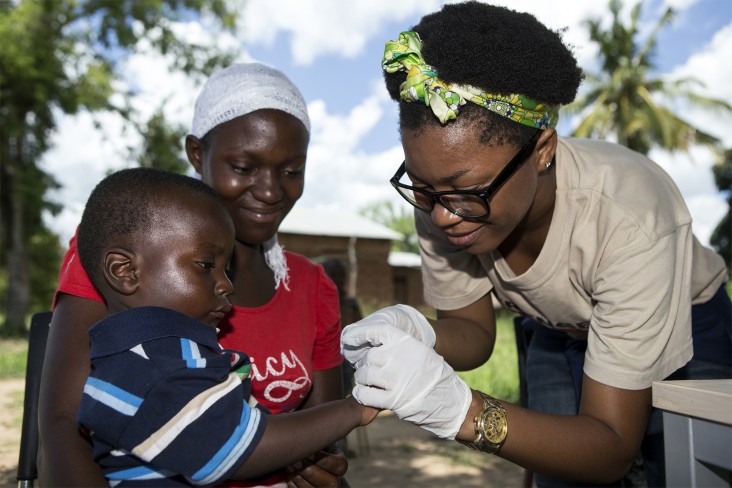
Feb. 2015—Medicine figured prominently in Neema Shosho’s family growing up in Dodoma, Tanzania. Her mother was a nurse and her brother, a doctor. When she was a young girl, family talk about food and nutrition was just that—talk. Now, Shosho is as much a participant in the conversations as the rest of her family.
Today, Shosho is many things: the regional nutrition officer for Tanga; the nutritionist for the Tanga Regional Referral Hospital; a nutritional consultant for a health insurance company, a national bank and a number of mining companies; and a nutritional columnist for a leading Tanzanian English language newspaper.
The catalyst of it all was Shosho’s participation in the Innovative Agricultural Research Initiative, a project funded by USAID under the U.S. Government’s global hunger and food security initiative, Feed the Future.
“It all started when I was at Kondoa High School in Dodoma,” said Shosho. “I was working part-time for an NGO, collecting data on nutrition and food security. I would go into people’s homes and meet individuals who were clearly malnourished. I would listen to their stories and see how they cope. I would tell myself: ‘This is what I want to do.’ This was what drove me to study nutrition.”
Following her graduation from Sokoine University of Agriculture in Morogoro, she pursued a Master’s in food and nutritional sciences from 2012 to 2014 through the USAID project’s sponsorship at Tuskegee University in the United States.
“Before my studies, I viewed nutritional problems in the sense of undernutrition, malnutrition and the unavailability of food. But then in the U.S., I learned about overnutrition, about being overweight and obesity problems. I learned how these could lead to noncommunicable diseases such as diabetes, hypertension and some forms of cancer,” she explains.
Shosho’s experiences are not unique. The USAID project is training the next generation of agricultural and nutrition leaders in Tanzania. Since 2011, it has placed 131 students, half of them women, in long-term advanced degree program training in the agricultural sciences, mostly in the United States.
Her experiences in the United States inspired Shosho’s work. Now, in addition to her advocacy initiatives in Tanga that ensure children are not underfed, she also teaches basic nutrition and the avoidance of overnutrition to her clients. She is currently preparing a weight-loss program for people in Tanzania, and expects to launch it in March 2015.
“I can confidently say that all this success is due to the education that I gained from Tuskegee University. When I was there, it actually clicked in my head that, in Tanzania, we need to deal with the overnutrition problem. It has not only changed my life, but it will surely change a lot of people’s eating habits as well,” she says.
The six-year iAGRI project, which concludes in 2016, is run by a consortium of six U.S. universities—Iowa State University, Michigan State University, Ohio State University, Tuskegee University, Virginia Tech and the University of Florida. iAGRI’s key partners in Tanzania include the Sokoine University of Agriculture and the Ministry of Agriculture, Food Security and Cooperatives. The project aims to prepare teachers, researchers and extension practitioners in Tanzania to cooperatively and effectively address needs of smallholder farmers, the growing agribusiness sector, and to find solutions to the country’s food security challenges.
LINKS







Comment
Make a general inquiry or suggest an improvement.